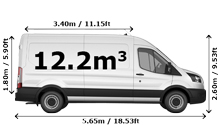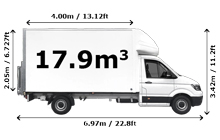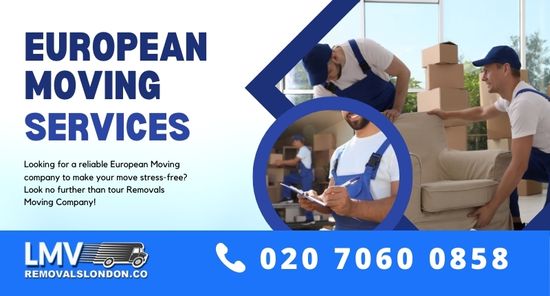UNDERSTANDING CUSTOMS REGULATIONS:
Customs regulations in both the UK and the EU are designed to govern the import and export of goods, ensuring the security and integrity of both regions. It's essential to thoroughly research and familiarize yourself with the unique customs procedures of each country before starting your move. Detailed guidance on customs processes can be found on the official websites of HM Revenue and Customs (UK) and the relevant financial institution in your destination country.
IMPORTING PERSONAL BELONGINGS:
When relocating from the UK to the EU, you may qualify for duty-free importation of personal effects and household items. Typically, you'll need to provide a detailed inventory list along with proof of residency and ownership for these belongings. To streamline the process, it's recommended to contact customs authorities beforehand to obtain necessary forms and guidance.
DECLARING GOODS:
For items like high-value goods, electronics, or vehicles, declaring them to customs authorities may be necessary. Failure to declare such items could lead to fines or confiscation, emphasizing the importance of transparency with customs officials.
CUSTOMS DOCUMENTATION:
Ensure you have all required documentation, including a valid passport, visa, and residence permit for your EU destination. Additionally, depending on your situation, shipping documents, invoices, or proof of payment for imported goods may be necessary.
VAT AND DUTY:
Be prepared for potential expenses related to Value Added Tax (VAT) and duty charges when transporting goods between the UK and the EU. As VAT rates and duty fees can vary, consulting customs authorities or seeking advice from a tax professional is advisable for accurate information.
TEMPORARY IMPORTATION:
If your relocation plans are temporary, such as for work or education, you may be able to bring certain items without paying duties and taxes. Temporary importation regulations differ, so it's essential to thoroughly understand the specific requirements and allowable duration in both the UK and the EU.
REQUIRED DOCUMENTS FOR MOVING BETWEEN THE UK AND EUROPE
To make your move between the UK and Europe smooth and hassle-free, please ensure you have the following documents ready at least 7 days before your scheduled collection:
Proof of Identity:
- A valid identity card or a copy of your passport.
Detailed Inventory Form / Insurance Form:
A comprehensive and signed inventory list detailing the value, size, and weight of each item being transported. Complete all sections of the LMV TRANSPORT LTD Inventory/ Insurance Form.
Proof of EU Residency or Intent:
Documentation confirming your status as an EU resident or your intention to become one. Examples include:
- If residing with your family in the EU: A signed statement along with a copy of their ID.
- If employed in the EU: Your EU employment contract.
- If you have living arrangements in the EU: A utility bill, tenancy agreement, or property ownership deed.
UK Residency Confirmation:
- A UK certificate of residence or other evidence proving that you have lived in the UK for a minimum of 12 months.
- Documents such as a council tax bill or bank statements displaying your UK address.
Customs Declaration:
- A self-certificate using the provided template.
- This self-certificate should confirm that you have used the household objects at your UK residence for more than six months and that you do not intend to sell, rent, or pledge them after they are received at your new location.
- Authorisation Letter (PDF)
CMR Form:
- Another important document, which our driver will provide for you to complete on the moving day.
Instructions for Document Submission
- Email Submission: All documents need to be signed and sent to our email.
- Printed Copies: You must also print a copy of all required documents for the driver upon their arrival.
Important Notice:
Please ensure that all documents are supplied at least 7 days before the moving date. Failure to provide the required documents on time will result in the immediate cancellation of your reservation. You will then need to supply a new reservation date, ensuring that all documents are submitted at least 7 days before the new moving date.
In some situations, you may be required to contact the local customs office in the country to which you are moving to declare the imported goods and close the transit.
Having these documents prepared in advance will streamline your relocation process between the UK and Europe.
Following the UK's exit from the EU, there have been further developments in customs and regulatory procedures. It is imperative to keep yourself informed about the most recent Brexit-related customs prerequisites and seek guidance from customs experts to guarantee adherence to these changes.















